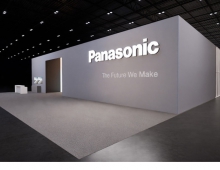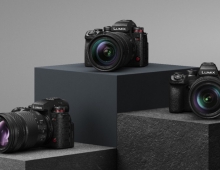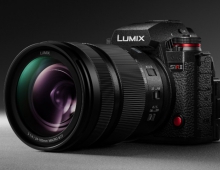
Panasonic, Sanyo, LG Chem In US price-fixing Guilty Plea
Panasonic and its subsidiary, SANYO Electric Co. Ltd., have agreed to plead guilty and to pay a total of $56.5 million in criminal fines for their roles in separate price-fixing conspiracies involving automotive parts and battery cells, the Department of Justice announced today.
LG Chem Ltd., has agreed to plead guilty and to pay a $1.056 million criminal fine for price fixing involving battery cells.
The guilty pleas against SANYO and LG Chem are the first in the department's investigation into anticompetitive conduct in the cylindrical lithium ion battery cell industry.
The three-count felony charge against Panasonic was filed in U.S. District Court for the Eastern District of Michigan. Separate one-count felony charges were filed against SANYO and LG Chem in U.S. District Court for the Northern District of California. As part of the plea agreements, which are subject to court approval, the charged companies have agreed to cooperate in the department's ongoing antitrust investigations.
Panasonic has agreed to plead guilty for its role in a conspiracy to fix prices of switches, steering angle sensors and automotive high intensity discharge (HID) ballasts installed in cars sold in the United States and elsewhere. SANYO and LG Chem Ltd. have agreed to plead guilty for their roles in a conspiracy to fix the prices of cylindrical lithium ion battery cells sold worldwide for use in notebook computer battery packs.
According to the court document, Panasonic and its co-conspirators carried out the conspiracy from at least as early as September 2003 until at least February 2010.
The department said that Panasonic and its co-conspirators agreed, during meetings and conversations, to suppress and eliminate competition in the automotive parts industry by agreeing to rig bids for, and to fix, stabilize, and maintain the prices of steering angle sensors sold to Toyota Motor Corp. and Toyota Motor Engineering & Manufacturing North America Inc. in the United States and elsewhere.
According to the third count of the charge, from at least as early as July 1998 and continuing until at least February 2010, Panasonic and its co-conspirators participated in a conspiracy to suppress and eliminate competition in the automotive parts industry by agreeing, during meetings and conversations, to rig bids for, and to fix, stabilize, and maintain the prices of automotive HID ballasts sold to Honda Motor Co. Ltd. and American Honda Motor Co. Inc., Mazda Motor Corp. and Mazda Motor of America Inc., and Nissan Motor Co. Ltd. and Nissan North America Inc. in the United States and elsewhere.
Including Panasonic, 11 companies and 15 executives have pleaded guilty or agreed to plead guilty and have agreed to pay a total of more than $874 million in criminal fines as a result of the auto parts investigation.
According to the one-count felony charge filed today in the U.S. District Court for the Northern District of California in San Francisco, SANYO and LG Chem engaged in a conspiracy to fix the price of the cylindrical lithium ion battery cells used in notebook computer battery packs from about April 2007 until about September 2008. Cylindrical lithium ion battery cells are rechargeable batteries that are often incorporated in groups into more powerful battery packs commonly used to power electronic devices.
The guilty pleas against SANYO and LG Chem are the first in the department's investigation into anticompetitive conduct in the cylindrical lithium ion battery cell industry.
The three-count felony charge against Panasonic was filed in U.S. District Court for the Eastern District of Michigan. Separate one-count felony charges were filed against SANYO and LG Chem in U.S. District Court for the Northern District of California. As part of the plea agreements, which are subject to court approval, the charged companies have agreed to cooperate in the department's ongoing antitrust investigations.
Panasonic has agreed to plead guilty for its role in a conspiracy to fix prices of switches, steering angle sensors and automotive high intensity discharge (HID) ballasts installed in cars sold in the United States and elsewhere. SANYO and LG Chem Ltd. have agreed to plead guilty for their roles in a conspiracy to fix the prices of cylindrical lithium ion battery cells sold worldwide for use in notebook computer battery packs.
According to the court document, Panasonic and its co-conspirators carried out the conspiracy from at least as early as September 2003 until at least February 2010.
The department said that Panasonic and its co-conspirators agreed, during meetings and conversations, to suppress and eliminate competition in the automotive parts industry by agreeing to rig bids for, and to fix, stabilize, and maintain the prices of steering angle sensors sold to Toyota Motor Corp. and Toyota Motor Engineering & Manufacturing North America Inc. in the United States and elsewhere.
According to the third count of the charge, from at least as early as July 1998 and continuing until at least February 2010, Panasonic and its co-conspirators participated in a conspiracy to suppress and eliminate competition in the automotive parts industry by agreeing, during meetings and conversations, to rig bids for, and to fix, stabilize, and maintain the prices of automotive HID ballasts sold to Honda Motor Co. Ltd. and American Honda Motor Co. Inc., Mazda Motor Corp. and Mazda Motor of America Inc., and Nissan Motor Co. Ltd. and Nissan North America Inc. in the United States and elsewhere.
Including Panasonic, 11 companies and 15 executives have pleaded guilty or agreed to plead guilty and have agreed to pay a total of more than $874 million in criminal fines as a result of the auto parts investigation.
According to the one-count felony charge filed today in the U.S. District Court for the Northern District of California in San Francisco, SANYO and LG Chem engaged in a conspiracy to fix the price of the cylindrical lithium ion battery cells used in notebook computer battery packs from about April 2007 until about September 2008. Cylindrical lithium ion battery cells are rechargeable batteries that are often incorporated in groups into more powerful battery packs commonly used to power electronic devices.





















